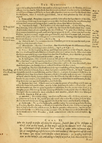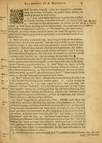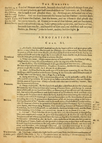John the Baptist in prison also doing his diligence, sendeth some of his Disciples to Christ: that as they heard, so they might also see his miracles with their eyes. (7) Afterward Christ declareth how worthy of credit Johns’ testimony was: (16) and inveigheth against the Jews, who with neither of their manners of life could be won: (20) no nor with Christ’s infinite miracles: (25) praising God’s wisdom in this behalf, (27) and calling to himself all such as feel their own burdens.
AND it came to pass: when Jesus had done commanding his twelve Disciples, he passed from thence, to teach and preach in their cities.
2 * And when John had heard in prison the works of Christ; sending two of his disciples, he said to him: 3 • art thou he that art to come, or look we for another? 4And Jesus making answer said to them: Go and report to John what you have heard and seen. 5 * The blind see, the lame walk, the lepers are made clean, the deafe hear, the dead rise again, to the poor the Ghospel is preached: 6and blessed is he that shall not be scandalised in me.
7And when they went their way, Jesus began to say to the multitudes of John: • What went you out • into the desert to see? a reed shaken with the wind? 8But what went you out to see? a man clothed in soft garments? Behold they that are clothed in soft garments, are in King’s houses. 9But what went you out to see? a Prophet? yea I tell you and more than a Prophet. 10For this is he of whom it is written: Behold I send mine angel before thy face, which shall prepare thy way before thee.
11Amen I say to you, there hath not risen among the born of women a greater than John the Baptist: yet he that is the lesser in the Kingdom of Heaven, is greater than he. 12And * from the days of John the Baptist until now, the Kingdom of Heaven suffereth violence, and the violent bear it away. 13For all the Prophets and the Law prophesied unto John: 14and if you will receive it, he is * • Elias that is for to come. 15He that hath ears to hear, let him hear.
16And * whereunto shall I esteem this Generation to be like? It is like to children sitting in the market-place, 17which crying to their companions, say, we have piped to you, and you have not danced: we have lamented, and you have not mourned. 18For * John came neither • eating nor drinking; and they say: He hath a Devil. 19The Son of man came eating and drinking, and they say: Behold a man that is a glutton and a wine-drinker, a friend of Publicans and sinners. And wisdom is justified of her children.
20Then * began he to upbraid the cities, wherein were done the most of his miracles, for that they had not done penance. 21Woe be to thee Corozain, woe be to thee Beth-saida: for if in Tyre and Sidon had been wrought the miracles that have been wrought in you, they had done • penance in haircloth and ashes long ago. 22But nevertheless, I say to you, it shall be more tolerable for Tyre and Sidon in the day of judgement, than for you. 23And thou Capharnaum, shalt thou be exalted up to Heaven? thou shall come down even unto Hell. For if in Sodom had been wrought the miracles that have been wrought in thee, perhaps it had remained unto this day. 24But notwithstanding I say to you, that it shall be more tolerable for the land of Sodom in the day of judgement, than for thee.
25At that time Jesus answered and said: * I confess to thee O Father Lord of Heaven and earth, because thou hast hid these things from the wise and prudent, and have revealed them to • little ones. 26Yea Father; for so hath it well pleased thee. 27All things are delivered me of my Father. And no man knoweth the Son but the Father: neither doth any know the Father, but the Son, and to whom it shall please the Son to reveal. 28Come ye to me all that labour, and are burdened, and I will refresh you. 29Take up my yoke upon you, and learn of me, because I am meek, and humble of heart: and you shall find rest to your souls. 30For my • yoke is sweet, and my burden light.
ANNOTATIONS. CHAP. XI.
↑ 3. Art thou he.) John himself doubted not, for he baptised him and gave great testimony of him before: Joa. 1. But because his Disciples knew him not, nor esteemed of him so much as of John their own Master, therefore did he send them unto Christ, that by occasion of Christ’s answer he might the better instruct them what he was, and so make them Christ’s Disciples, preferring them to a better Master.
↑ 7. What went you out.) High commendation of John’s holiness, as well for his fasting, rough attire, solitary life, and constancy, as for the dignity of his function.
↑ 7. Into the desert.) The faithful people in all ages resorted of devotion into wilderness, to see men of special and rare holiness, Prophets, Eremites, Anchorites etc. to have their prayers or ghostly counsel. See St. Jerom de vita Hilarionis.
↑ 14. Elias.) As Elias shall be the messenger of Christ’s later coming, so was John his messenger and Precursor at his former coming: and therefore is he called Elias; because of his like office and like spirit. Luc. 1 Grego. hom. 7 in Evang.
↑ 18. Eating and drinking.) The wicked quarrellers of the world misconstrue easily all the acts and life of good men. If they be great fasters and austere livers, they are blasphemed and counted hypocrites: if they converse with other men in ordinary manner, then they be counted dissolute.
↑ 21. Penance in sackcloth.) By this sackcloth and ashes added here, and in other places, we see evidently that Penance is not only leaving of former sins, and change or amendment of life past, no nor bare sorrowfulness or recounting of our offences already committed, but requireth punishment and chastisement of our Persons by these and such other means, as the Scriptures do elsewhere set forth, and therefore concerning the word also, it is rather to be called Penance, as in our translation; than (as the Adversaries, of purpose avoiding the word) Repentance or Amendment of life: and that according to the very usual signification of the * Greek word in the most ancient Ecclesiastical Greek writers: who for Penitents (which in the primitive Church did public Penance) say * οι εν μετανοια οντες that is, Men that are doing Penance. And concerning that part of Penance which is Confession, the Ecclesiastical history calleth it by the same Greek word, and the Penitents coming to confession, τους μετανοουντας. Sozam. lib. 76 16. Socrat. lib. 5 ch. 19.
↑ 25. Little ones.) These little ones do not signify here only the unlearned, as though Cobblers and weavers and women, and girls had this revelation, and therefore do understand all Scriptures and are able to expound them: but here are signified the humble, whether they be learned or unlearned: as when he saith, unless you become as little ones, you shall not enter into the Kingdom of Heaven. And so also the greatest Doctors (who as they were most learned, so most humbled themselves to the judgement of the Catholic Church) are these little ones: and Heretics, who although unlearned, yet vaunt their knowledge and their spirit of understanding above all ancient Fathers and the whole Church, can not be of these little and humble ones.
↑ 30. Yoke sweet.) What is this light burden and sweet Yoke, but his commandments, of which St. John saith 1. Ep. 5. His commandments are not heavy? clean contrary to the Adversaries that say, they are impossible to be kept.
Margin Notes
- 2–10. The Ghospel the 2nd Sunday in Advent.
- 25–30. The Ghospel upon St. Mathias day Feb. 24 and upon St. Francis day Octob. 4 and for many Martyrs, and upon St. Paul’s day the first Eremit Jan. 25.
- annot. 7. Eremitical life.
- annot. 15. Elias.
- annot. 21. Penance
- annot. 21. Μετανοια
- annot. 30. The commandments possible.
Margin References
- 2. Luc. 7, 18.
- 5. Esa. 35, 5. 61, 1.
- 10. Mal. 3, 1.
- 12. Luc. 16, 16.
- 14. Mal. 4, 5.
- 16. Luc. 7, 31.
- 18. Mat. 3, 4.
- 20. Luc. 10, 13.
- 25. Luc. 10, 21.
- annot. 21. Dionys. Eccl. hier. ch. 3. in initio.
- annot. 25. Mat. 18, 3.



